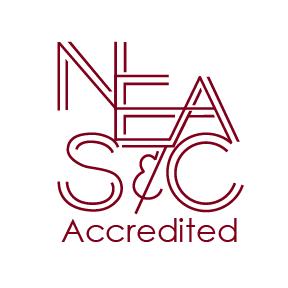Beyond Classrooms, Real-World Learning: Project Week Recap
Issue date:2025-04-14From 24 to 30 March, over 200 DP2 students embarked on a week-long immersive exploration across multiple provinces and cities, including Shanghai, Yunnan, Shandong, Guangdong, and Fujian. Carrying 22 self-designed projects focused on themes like "community service," "cultural exchange," and "sustainable practices," they transformed rural towns, farmlands, and historical sites into dynamic classrooms.
Planned since November 2024, this Project Week was a hands-on exercise in turning passion into action. From theme research and task delegation to budget management, risk assessment, and logistical arrangements, every detail was student-led. Each group submitted detailed Weekly Plans and Risk Evaluation Forms, with final poster reflections documenting their journey from concept to execution. Below, we spotlight three projects from Guangdong, Shandong, and Shanxi that exemplify how students grew through real-world challenges.
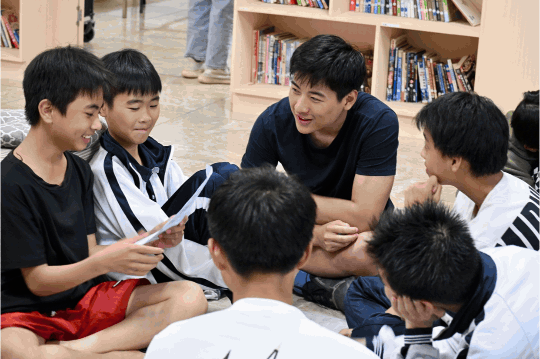
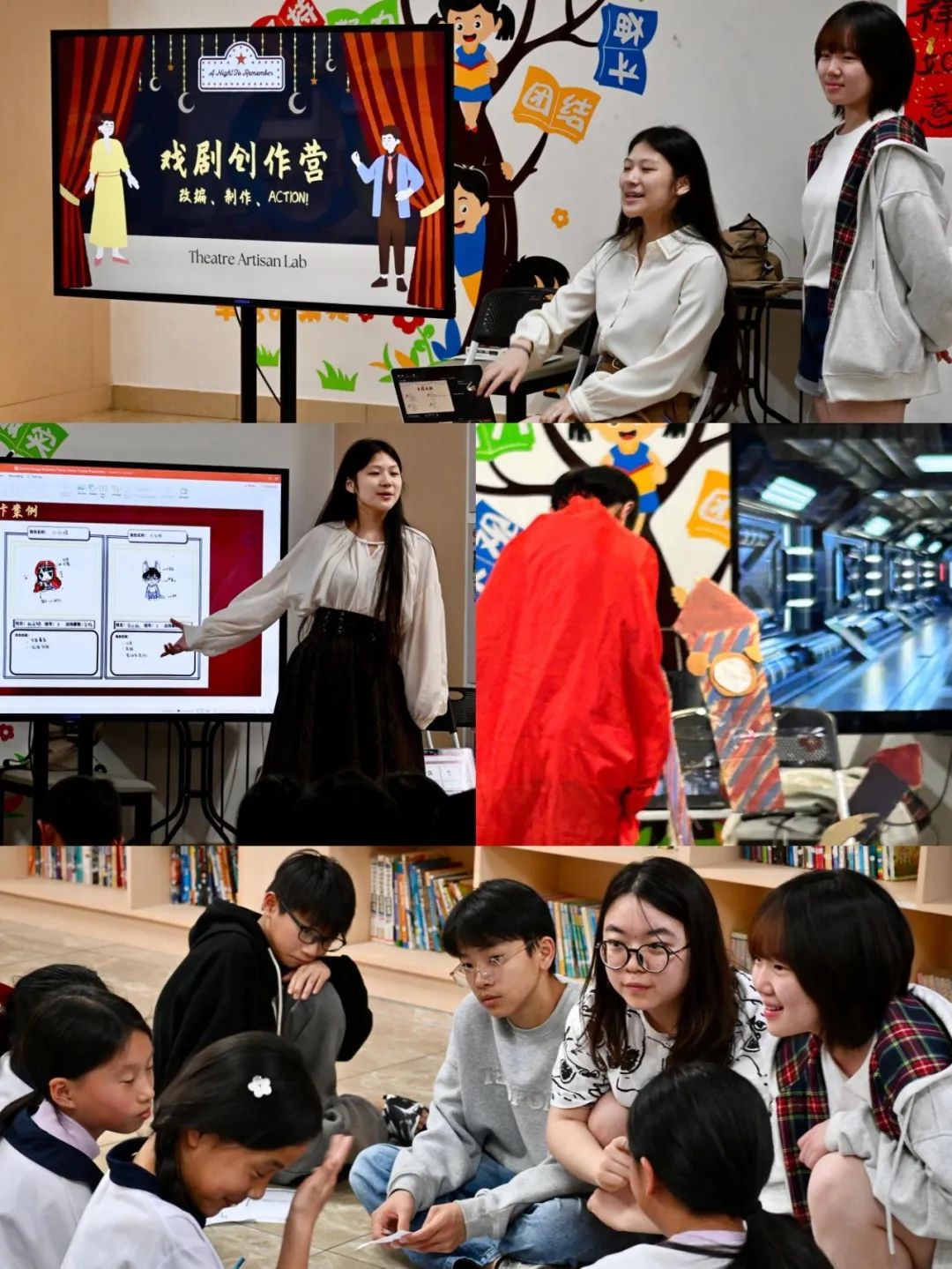
Stephanie Wang's journey embodies the service spirit of their team. As a PVO Zhixing volunteer (an online teaching initiative), she longed to meet students offline but faced challenges with an introverted group. Tasked with collaborative scriptwriting, she resisted taking over despite their slow progress, realizing it would undermine the project's goals. Hearing peers' success stories, she initially felt "unlucky" but soon reflected: "How can I lead if I avoid challenges?". Learning two brothers in her group had unresolved conflicts, she adjusted her approach.

Reflecting on her experience, Stephanie shared, "This experience taught me that community service isn't about acting as a 'teacher' to instruct but using existing knowledge frameworks to spark creativity and critical thinking. Though I encountered countless unforeseen challenges, navigating them strengthened my resilience, deepened my empathy, and solidified my commitment to helping others."

📍Yantai, Shandong:
Sustainable Agriculture in the "Field Classroom"
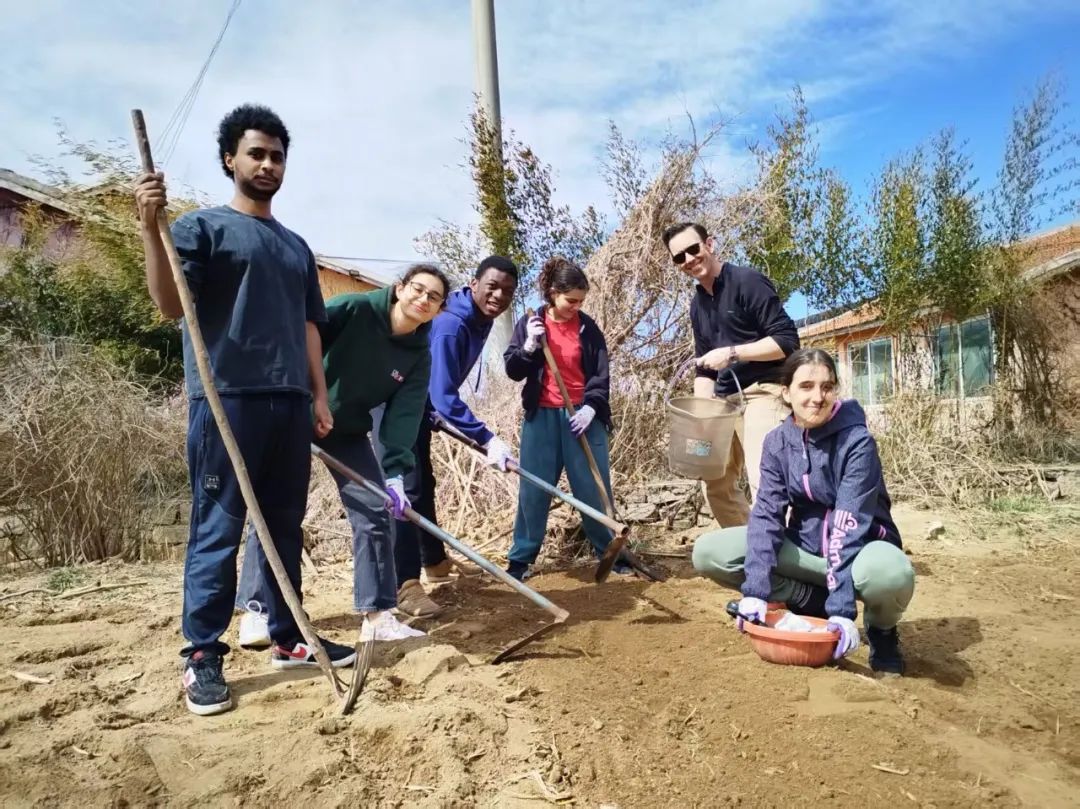
At Shandong's Aone Farm, students delved into sustainable practices. They studied aquaponics systems where fish and crops thrive symbiotically, marveled at aeroponics towers with "floating" plant roots, and got their hands dirty planting beans and fruit trees.

For many, it was their first time wielding a hoe. The task challenged their comfort zones—overcoming the fear of dirt and navigating apple orchards where, as the farmers warned, "if you touch a branch, you kill an apple." They also sprayed enzyme solutions to boost soil health—a critical step for autumn harvests—and cooked meals using farm-fresh ingredients.

Joseph Zou, reflecting on the experience, said, "The five months spent planning—from team disagreements to choosing the farm—felt like solving one challenge after another. But working through those conflicts made our team fully committed once we started. Our group included students from Australia, China, Ethiopia, Greece, Italy, Kenya, Nepal, Togo, the U.S., and other countries. With a balanced mix of genders (6 boys, 7 girls), four religions, and different dietary needs, we still got along perfectly—showing UWC's spirit of diversity. Our school had partnered with this farm five years ago, and this visit taught us even more about aquaponics systems. We did hands-on work like planting potatoes, yams, and peas, cooking with fresh ingredients, composting waste, and taking buses daily. These small, everyday actions made me realize that sustainability isn't just about big ideas—it starts with practical steps in real life."
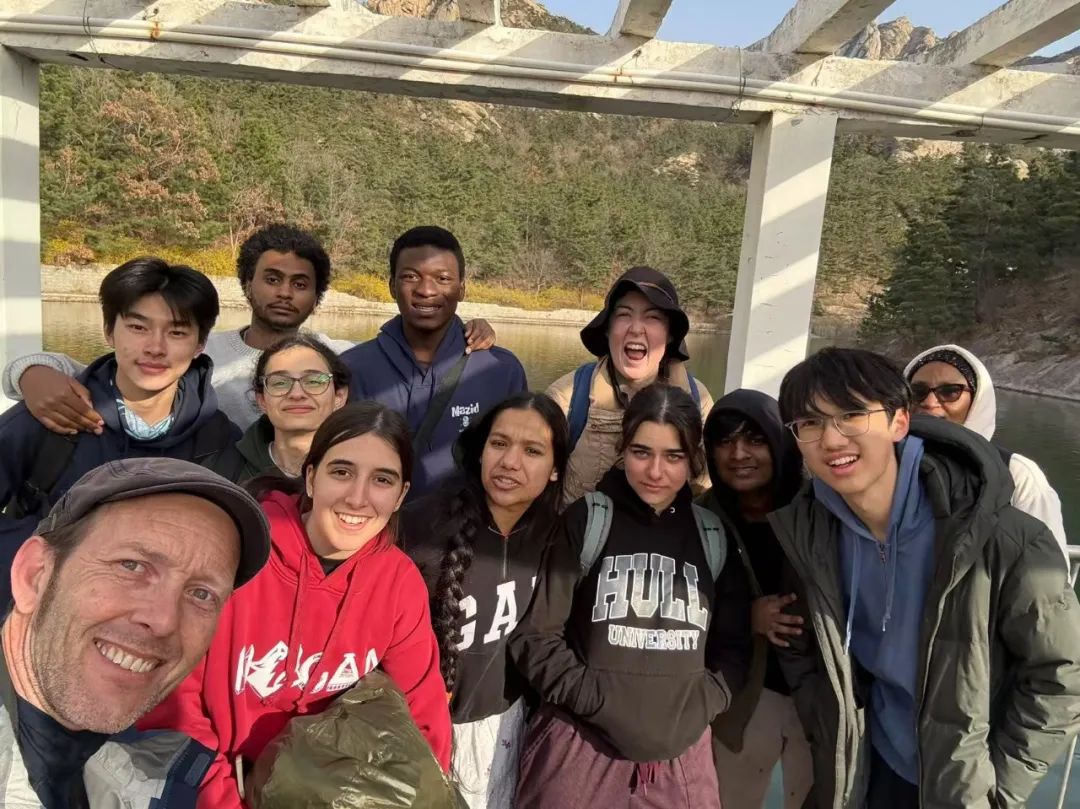
Katerina from Greece shared, "My key takeaways from Project Week are experiencing farmwork and cutting-edge farming techniques like aquaponics and aeroponics, and making new friends. I learned how to overcome language barriers, communicate effectively, and follow experts' instructions. We discovered how much science underpins sustainable farming and the physical labor required to maintain kilometers of greenhouses. Aone Farm uses the first level of pollution management, which we refer to in Environmental Systems and Societies (ESS) terms as 'alternating human activity'—preventing pollution through science and planning. Applying classroom knowledge to real-life situations was amazing. All in all, Project Week is the ultimate UWC experience, one I'll remember as a core memory long after graduation."
📍Shanxi Jinzhong:
Exploring the Preservation and Inheritance of Culture
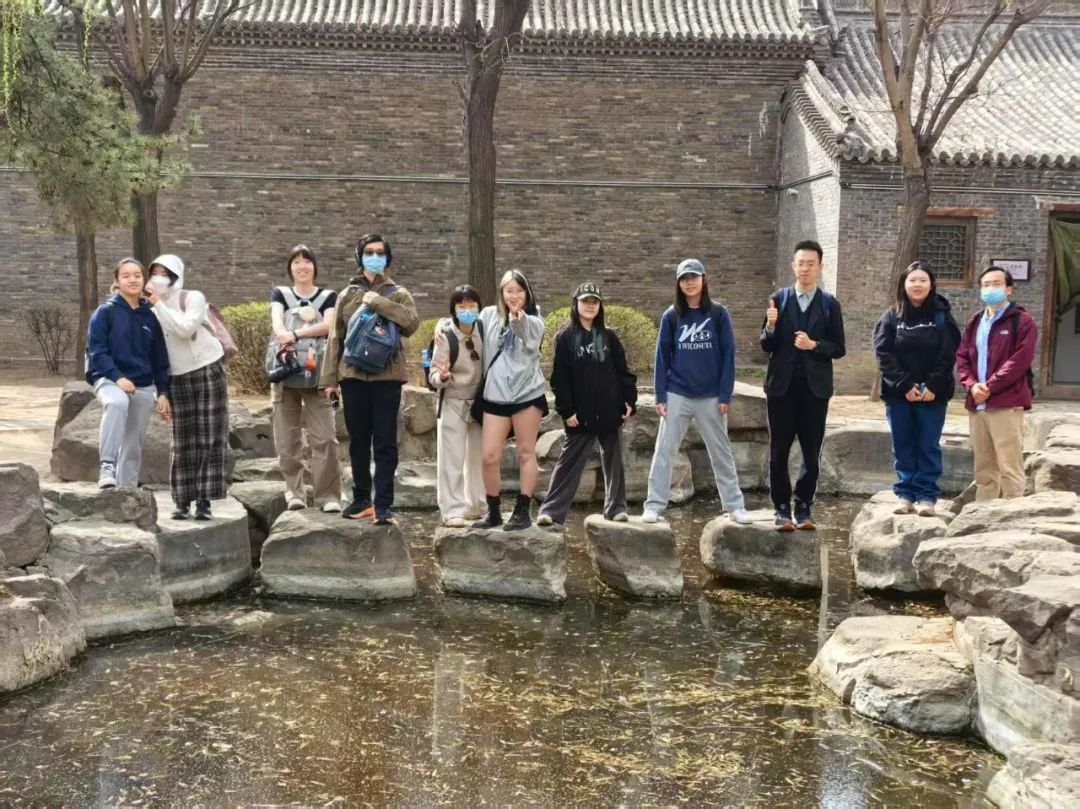
A student team explored Shanxi's Jinzhong area, visiting ancient buildings, historical sites, and museums. They sketched on-site, replicated ancient artifacts, and filmed videos. They gathered traditional art forms like clay sculptures, wood carvings, murals, and cave art. Their goal is to turn these into a calendar highlighting Shanxi's cultural heritage and the art and science of restoring its historic treasures.
April Yan, who led the project, loves religious culture. Inspired by the Buddhist themes in the manga Land of the Lustrous and rock-color painting techniques, she said, "Drawn by our love for beauty, my peers and I chose to focus on Shanxi's culture and relic restoration. With this calendar, we want to show how Shanxi's traditions and modern life blend uniquely. By adding our artistic touch, we hope to share our passion for cultural art—and prove 'spreading culture' can be part of everyday life."
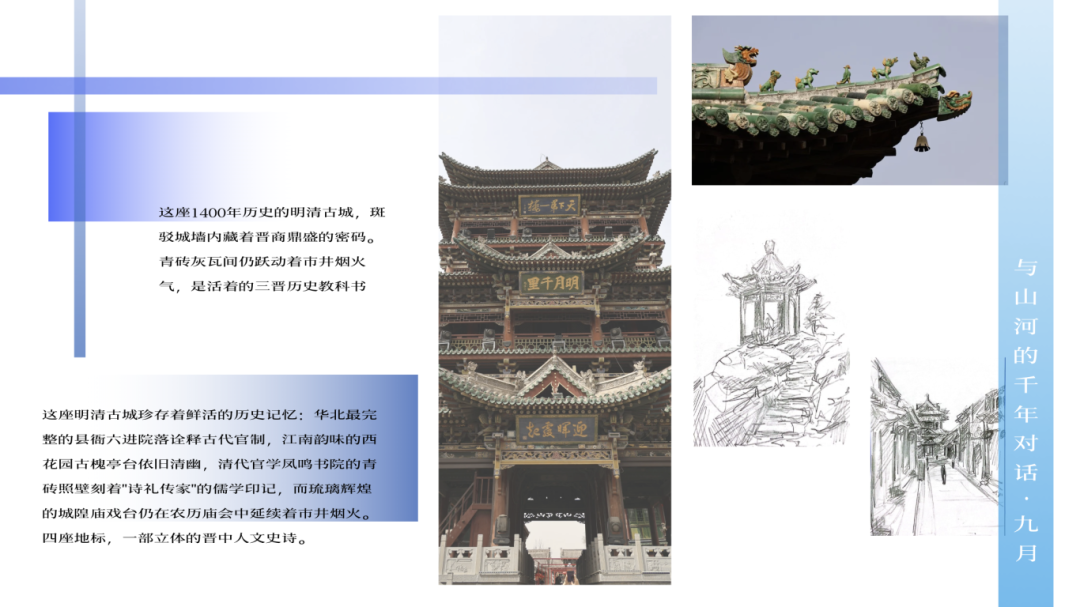
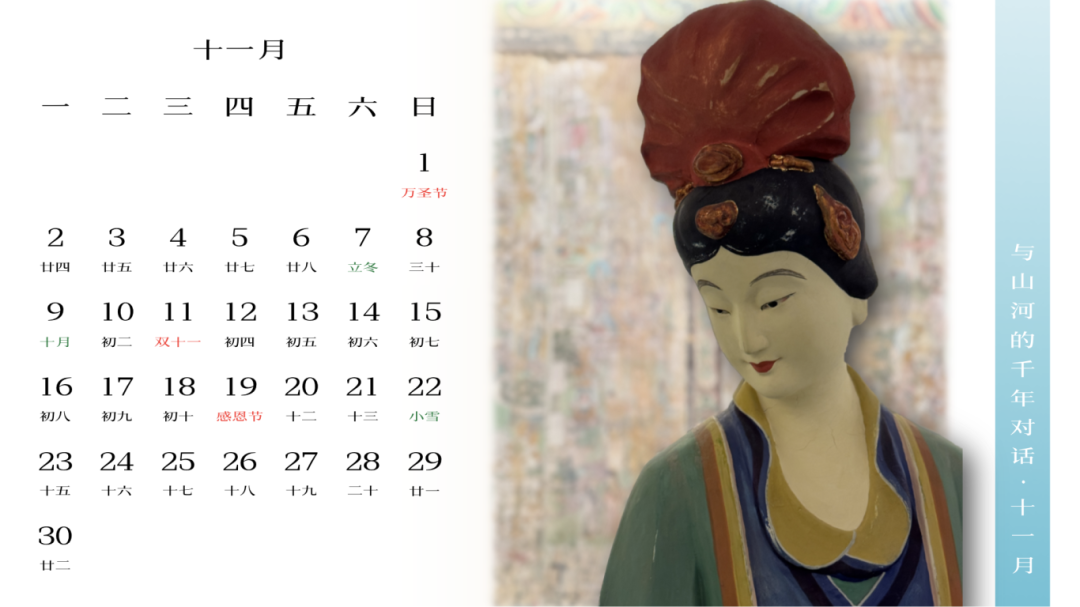

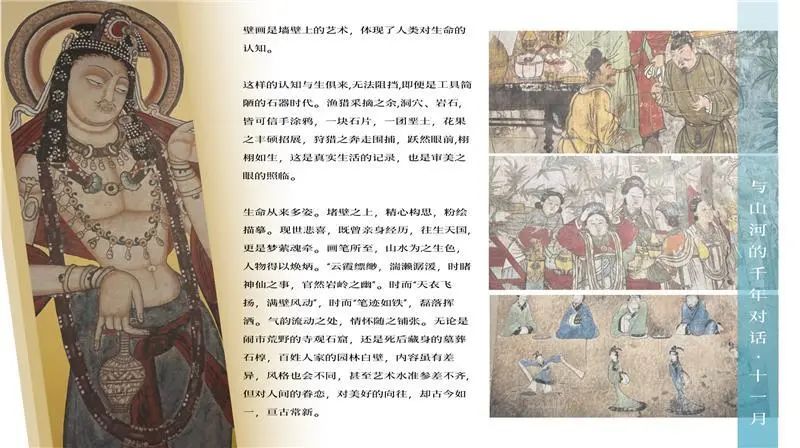
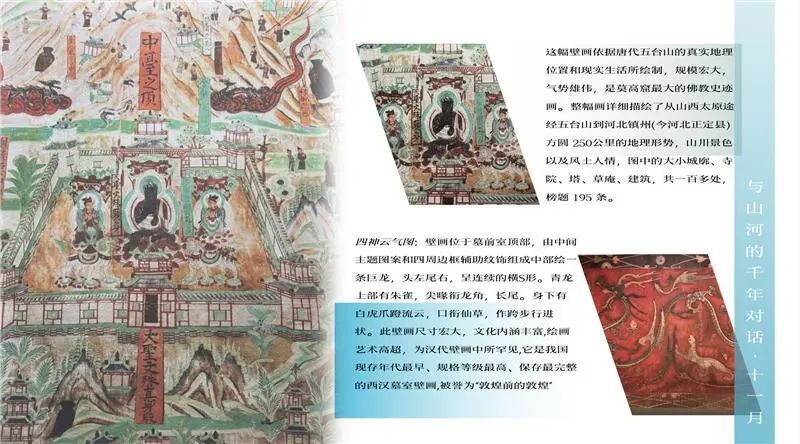
The calendar that the group members made
Beyond these projects, other groups traveled to Qingdao to support young adults with autism in social integration, to Zhoushan to study otter and ocean conservation, and to Beijing's Dandelion School for cultural exchanges...
The planning and execution of Project Week served as a comprehensive test of teams' cohesion and ability to deliver. Stepping beyond the classroom, students learned to turn disagreements into collaboration, develop resilience amid unexpected challenges, and embrace diversity through cross-cultural interactions. When the 22 groups of students returned to campus, they demonstrated "how to take meaningful action in the real world", marking their growth in praticial problem solving and social responsibility.










